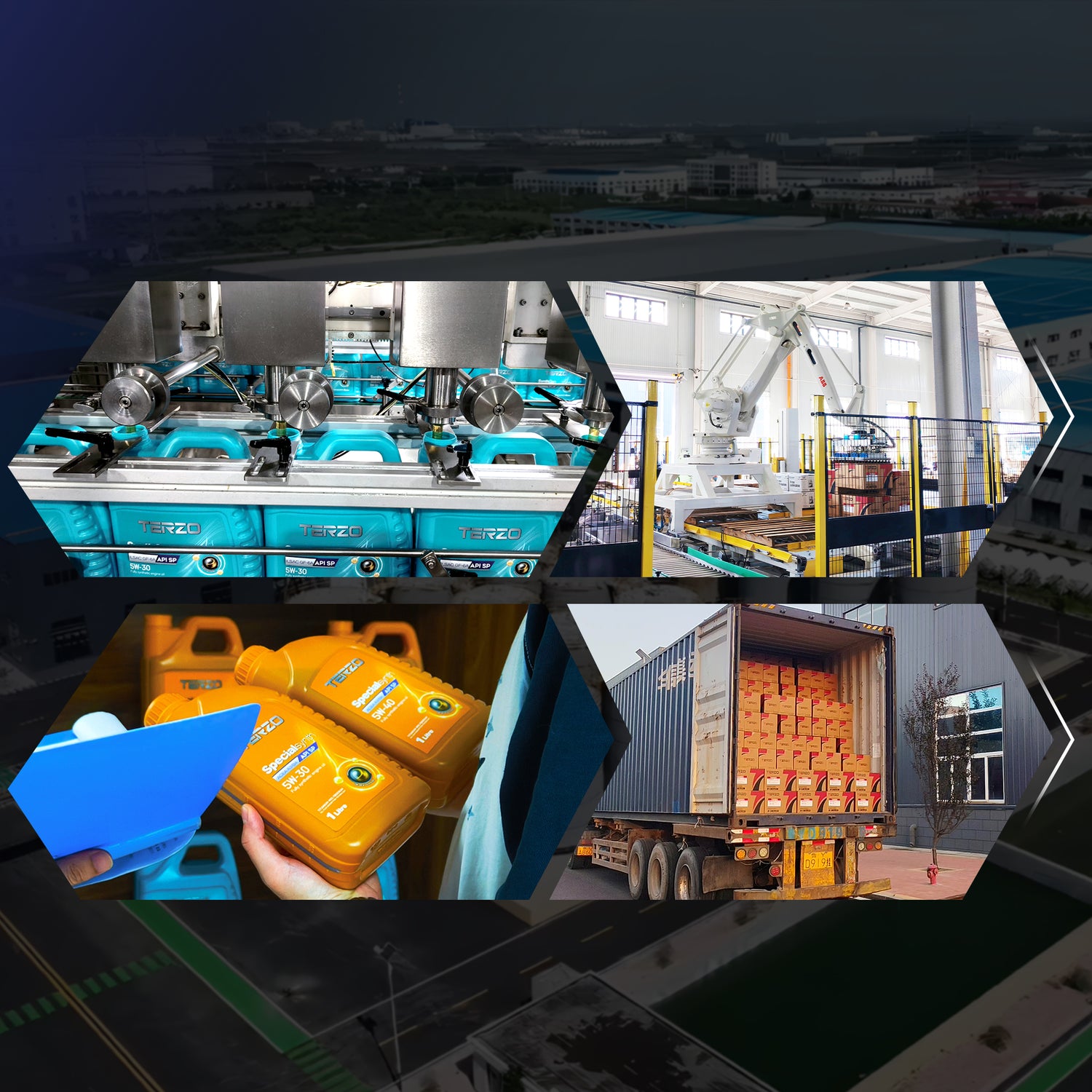Exploring SQ/GF - 7: New Changes in the Lubricant Industry and TERZO's Practical Exploration
SQ/GF-7 Engine Oil Standard: Pioneering a New Era in Lubrication
By TERZO
In the rapidly evolving automotive industry, advancements in engine technology demand ever-higher performance from lubricants. On March 31, 2025, API (American Petroleum Institute) and ILSAC (International Council on Clean Transportation) jointly introduced the SQ/GF-7 engine oil standard, replacing the legacy SP/GF-6 specifications. This groundbreaking update addresses modern engines' needs for efficiency, durability, and environmental compliance.
1. SQ/GF-7: Redefining Lubrication Standards
The SQ/GF-7 standard elevates performance benchmarks to meet the stringent demands of turbocharged direct-injection (TGDI) engines and hybrid systems. Key advancements include:
Enhanced Fuel Efficiency
- Optimized viscosity profiles (e.g., SAE 0W-8/0W-12) reduce internal friction, improving fuel economy by up to 4.8% compared to previous standards.
- Aligns with global emissions regulations (e.g., China’s "Dual Carbon" goals) by minimizing energy losses and supporting gasoline particulate filter (GPF) compatibility.
Advanced Low-Speed Pre-Ignition (LSPI) Protection
- Introduces Aged Oil LSPI Testing (Sequence IX) to ensure protection throughout the oil change interval.
- Mitigates piston damage and connecting rod fractures in turbocharged engines under low-speed, high-load conditions.
Robust Piston Deposit Control
- Stricter limits on high-temperature deposits reduce carbon buildup by 9.5%, extending engine lifespan and reducing maintenance costs.
Upgraded Wear Protection
- Enhanced timing chain wear protection reduces chain elongation by 6%, ensuring smooth operation in high-power-density engines.
Expanded Seal Compatibility
- New material compatibility tests for seals and gaskets (e.g., fluororubber, EPDM) prevent leaks and ensure long-term reliability.

2. SQ/GF-7 Implementation: From Lab to Road
Test Vehicles and Driving Conditions
- Diverse Fleet: Includes mainstream gasoline and hybrid models (e.g., Japanese, American, and Chinese brands) equipped with variable valve timing (VVT) and direct injection.
- Real-World Scenarios: Simulates urban congestion, suburban roads, and highway driving to evaluate fuel efficiency and wear resistance.
Testing Protocol
-
Pre-Test Preparation:
- Comprehensive engine inspection and baseline oil analysis.
- Lubricant application per manufacturer specifications.
-
In-Field Monitoring:
- Real-time data collection (engine RPM, load, temperature, pressure).
- Regular checks on tires, brakes, and suspension.
-
Post-Test Analysis:
- Lubricant samples collected at intervals for viscosity, TBN (Total Base Number), wear metals, and contaminants analysis.

- Lubricant samples collected at intervals for viscosity, TBN (Total Base Number), wear metals, and contaminants analysis.
3. Road Test Results: Anticipated Insights
TERZO’s ongoing road tests involve multiple vehicle models and third-party partners (e.g., SGS) to ensure data reliability. Key objectives:
- Validate real-world fuel economy gains under diverse conditions.
- Assess long-term protection against LSPI and piston deposits.
- Optimize formulations for compatibility with hybrid and electric vehicle (EV) powertrains.
Future Outlook
The SQ/GF-7 standard marks a pivotal shift toward sustainability and performance synergy. By balancing efficiency with durability, it supports automakers in meeting emissions targets while enhancing consumer trust. TERZO remains committed to advancing lubricant innovation, ensuring engines operate at peak performance for generations to come.
For detailed technical specifications or certification inquiries, contact TERZO technical support.




